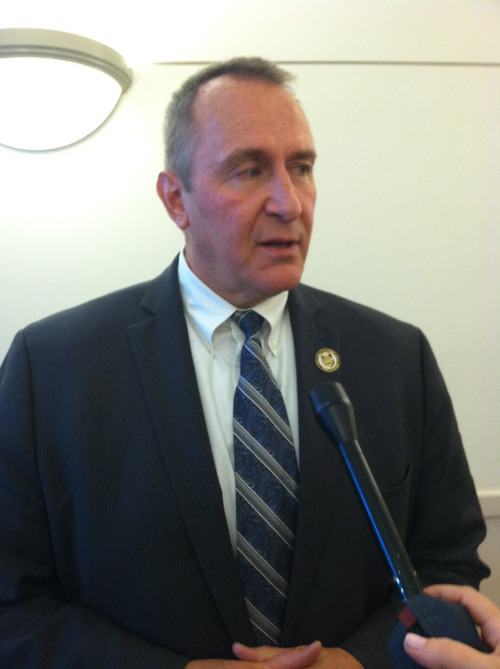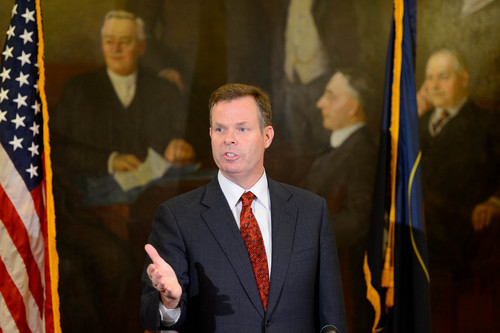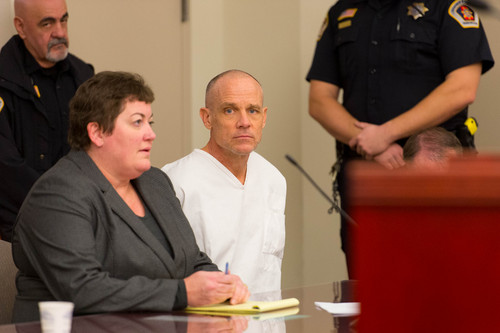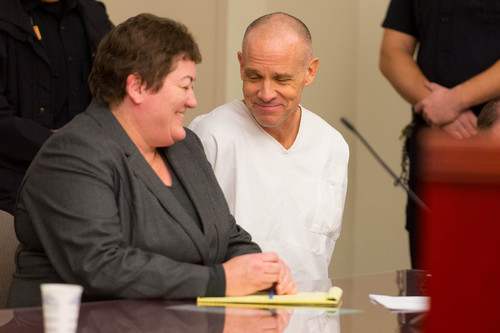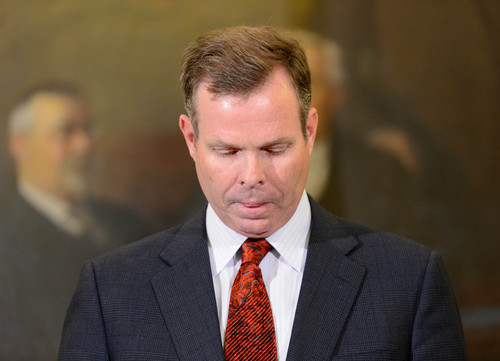This is an archived article that was published on sltrib.com in 2014, and information in the article may be outdated. It is provided only for personal research purposes and may not be reprinted.
Jailed businessman Marc Sessions Jenson has suffered a setback in his efforts to drag former Utah Attorneys General John Swallow and Mark Shurtleff into court, but that doesn't mean he's going to stop trying.
Jenson's lawyer hopes to show his client was singled out and prosecuted in retaliation for bucking the alleged "pay-to-play" scheme at the heart of the Swallow scandal.
But 3rd District Judge Elizabeth Hruby-Mills denied a motion Tuesday for an evidentiary hearing at which defense attorney Marcus Mumford planned to call several "key witnesses" to testify about the existence of communications that Jenson believes will clear his name.
"We respect the court's ruling," Mumford said Wednesday. "In fact, in her ruling the judge reiterated to both sides that it is the prosecutor's duty to make the disclosures of the types of information that we're seeking."
Utah County prosecutor Tim Taylor, who is handling the case, has insisted no such exculpatory evidence exists — and even if it did, he has argued, it's unlikely Jenson could get it.
"Any individual who has exculpatory information, they are going to lawyer up," Taylor said at February hearing.
Taylor told the court that Swallow, Shurtleff or any other individuals of close proximity to the scandal engulfing the attorney general's office is likely to invoke a Fifth Amendment right against self-incrimination and refuse to testify.
He has called Mumford's insistence on questioning the former law enforcement officials a distraction and continues to push for a trial date. The case has been ongoing since 2011 and concerns alleged crimes committed as far back as 2007.
Jenson is accused of felony fraud and money laundering over his now-defunct plans to develop a high-end Beaver County resort known as the Mount Holly Club. He is charged in 3rd District Court with eight second-degree felonies: four counts of communications fraud, three counts of money laundering and one count of committing a pattern of illegal activity.
Jenson will next appear in July at which time Mumford will ask the court to address more motions, including one alleging that the state issued a number of "illegal subpoenas" in its efforts to prosecute Jenson's case.
Mumford, who got the attorney general's office to withdraw from prosecuting the case in July, said he will continue to file motions and seek "evidence we need to ensure the process is fair and ensure we get a fair trial."
His main defense thus far has been alleging prosecutorial misconduct, claiming the attorney general's office acted inappropriately in going after his client.
Taylor has insisted that because Jenson committed crimes and defrauded several people, the reason he was brought to court is irrelevant — that there must be justice for his alleged victims.
Mumford's motions are based largely on a Utah House committee report that alleges Swallow "hung a veritable 'for sale' sign on the office door."
"At a minimum," Mumford said, "that report raised troubling questions about whether decisions at the attorney general's office were made for legitimate or illegitimate reasons."
Jenson has accused Swallow and Shurtleff of shaking him down for hundreds of thousands of dollars.
Although Taylor had sent two resolution offers to Jenson and his co-defendant brother, Stephen R. Jenson, Mumford said Wednesday they were no longer in plea negotiations with the state.


